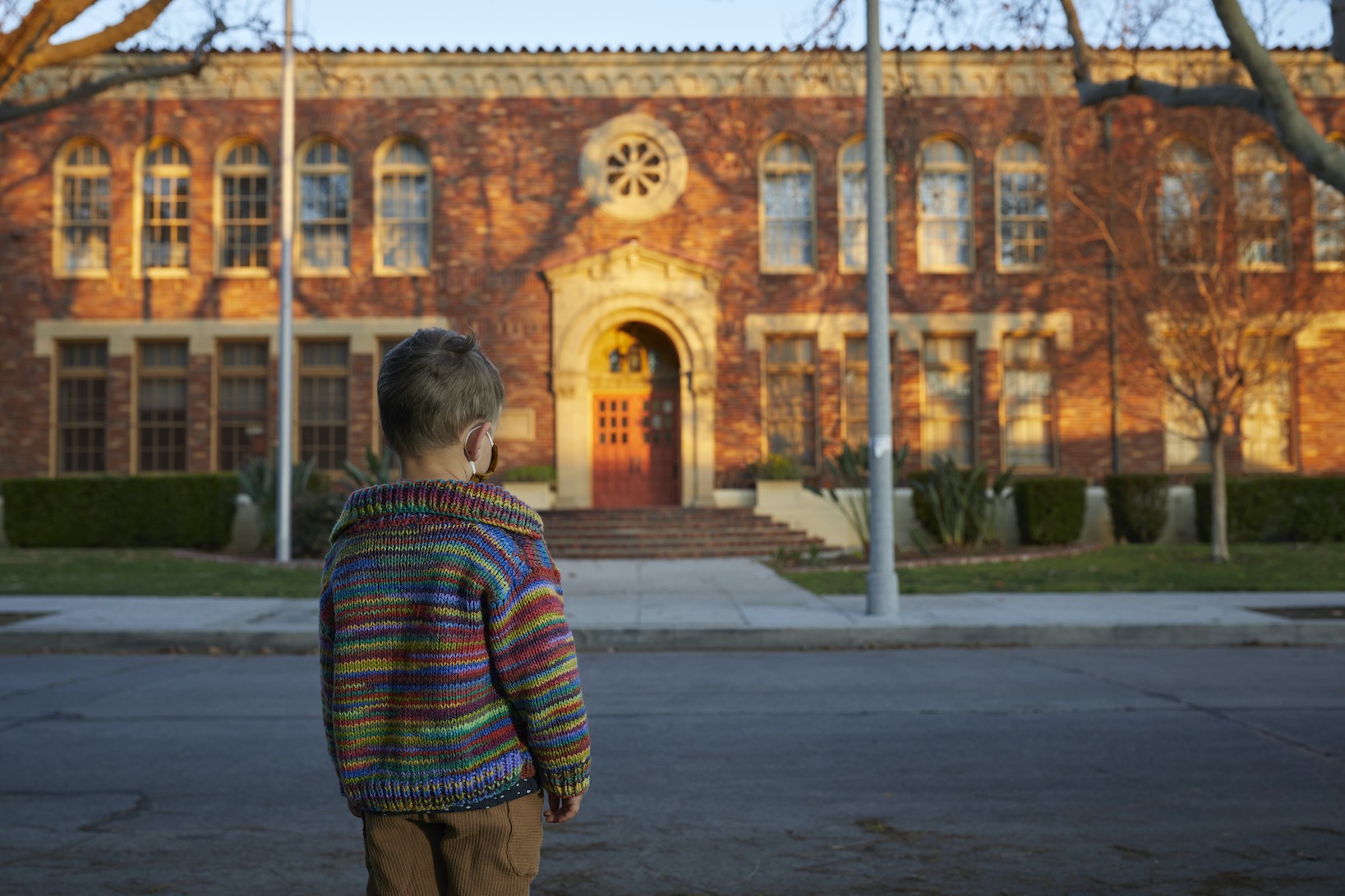How to Help Kids Return to the Classroom
Children May Need Overdue Immunizations and Emotional Support Before Heading Back to School
With kids heading back to school later this month—many attending in-person classes for the first time in more than a year—students and parents may be feeling anxious. After a year of virtual learning, children might be unprepared to return, physically and emotionally.
The COVID-19 pandemic not only kept kids home from school, but many skipped annual visits to their pediatricians as well. Orders for childhood vaccines dropped by 14% in 2020-2021 compared to 2019, and orders for the measles vaccine are down by more than 20%, according to data from the Centers for Disease Control and Prevention.
"During the peak of the pandemic, while we were all in isolation, we noticed that the rates of these routine childhood vaccines dropped off significantly," said Priya Soni, MD, a pediatric infectious disease specialist at Cedars-Sinai. She especially saw many teenagers delay important shots, such as the meningococcal vaccine or the HPV vaccine.
With only weeks to go before school starts, now is the time for kids to get immunized against preventable diseases. Soni encouraged parents to make appointments with their pediatricians before their children start gathering in person once again.
"We want to make sure we're not dealing with a new problem on top of COVID-19," Soni said. "It’s like sending kids out into a rainstorm with no umbrella. You don't want them to be unprotected."
Not out of the Woods Yet
Parents also should add COVID-19 vaccines to their list of immunizations for kids who are 12 or older, Soni said. Children younger than 12 aren't yet eligible for a vaccine. For unvaccinated children who are returning to school in person, it's important to keep them safe by ensuring all family members at home are vaccinated. This helps to form a protective barrier for the child not just at school but at home as well. Soni added that keeping track of childhood vaccinations also plays a significant role in keeping kids safe.
And with the number of COVID-19 cases rising throughout the country, driven by the spread of the delta variant primarily among unvaccinated people, masks are an important part of back-to-school prep.
"Teaching children to wear a mask when they're around other children is crucial in preparing for school this year," Soni said. "This is the most effective tool we have, until vaccines are readily available in this vulnerable age group."
Easing Back Into In-Person Learning
In addition to physical health, parents should be mindful of their children's emotional and mental health as they return to the classroom amid unprecedented circumstances. Children might be feeling the stress of being stuck at home for more than a year and need social and emotional guidance to ease their return to in-person learning.
Children missed out on many normal interactions and opportunities for relationship-building during the pandemic. To give kids the sense of being on track again, it's important for parents to create a routine, said Suzanne Silverstein, founding director of Cedars-Sinai Share and Care, a program for children experiencing psychological trauma. She recommended selecting kids' clothing the night before class and packing bags ahead of time to help their sons and daughters feel prepared.
"Kids were deprived of the ability to connect appropriately with other children and with authority figures," Silverstein explained. "To help improve kids' emotional stability, it might be good to focus on social and emotional learning at first rather than grades."
She encouraged teachers to make space for students to share their feelings during class activities and assignments. For example, teachers could start the day with students seated in a circle talking about what they are experiencing as they return to school.
Those experiences may be varied, said marriage and family therapist Jonathan Vickburg, program manager of Cedars-Sinai Share and Care. He said teachers should keep in mind that some children may have lacked access to important resources—such as a laptop—during the year of virtual learning, which may have caused even more stress. Helping kids share their feelings and process their emotions can reduce anxiety, especially for those who may have fallen behind.
"The ultimate goal is to provide structure for children returning to school and help them get back into the swing of things with the support of those around them," Vickburg said. "We all want our kids to succeed during this unusual year. It's just a matter of providing them with the right tools."
Read more on the Cedars-Sinai Blog: Understanding COVID-19 Vaccine Trials in Children





